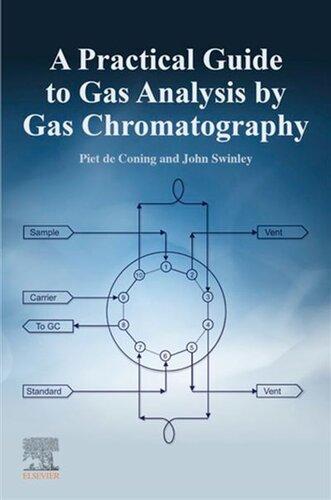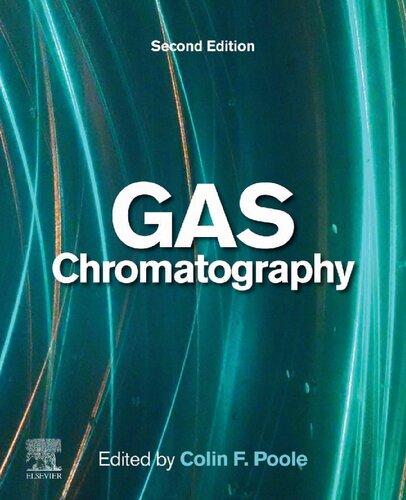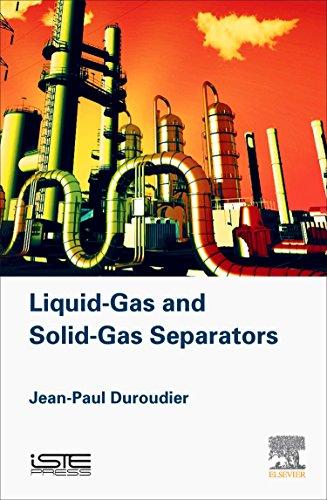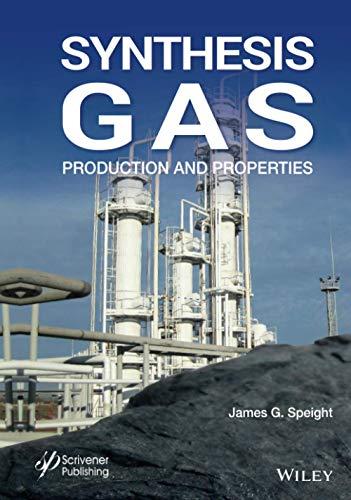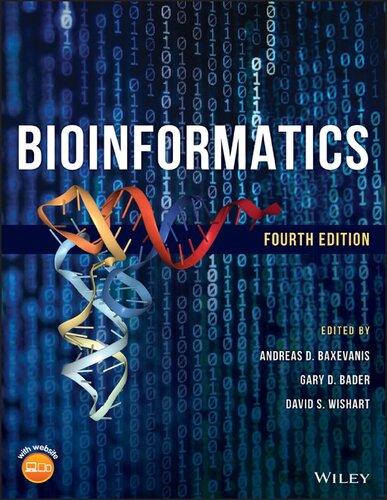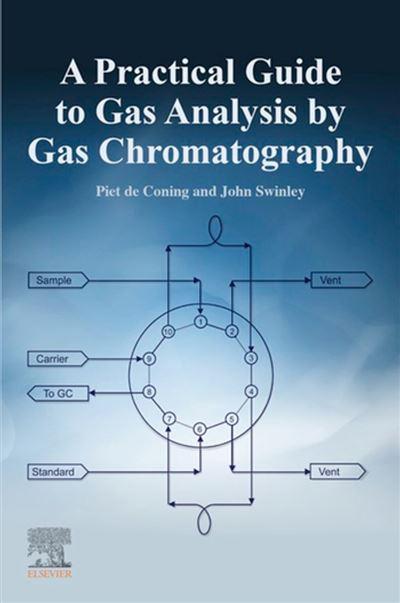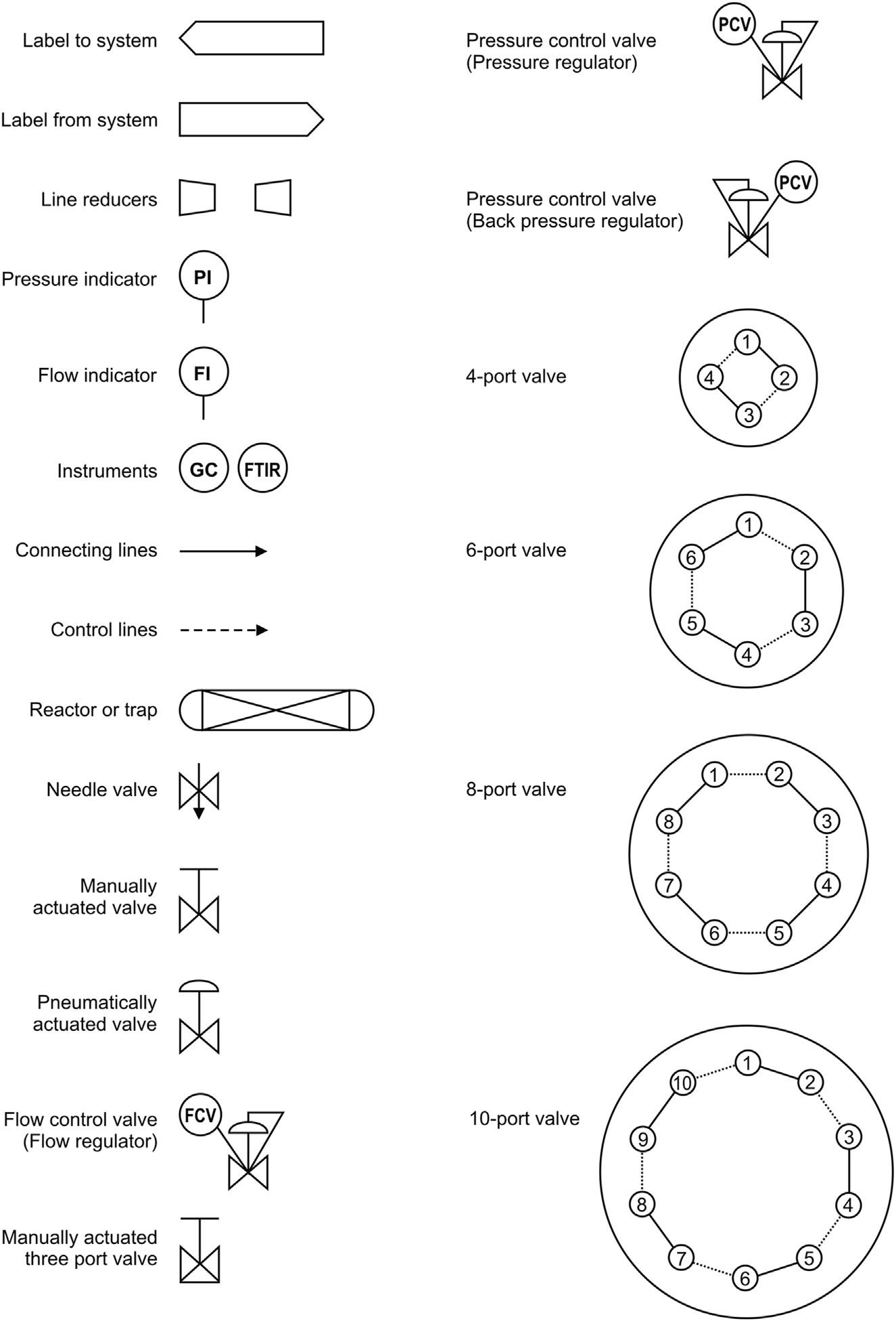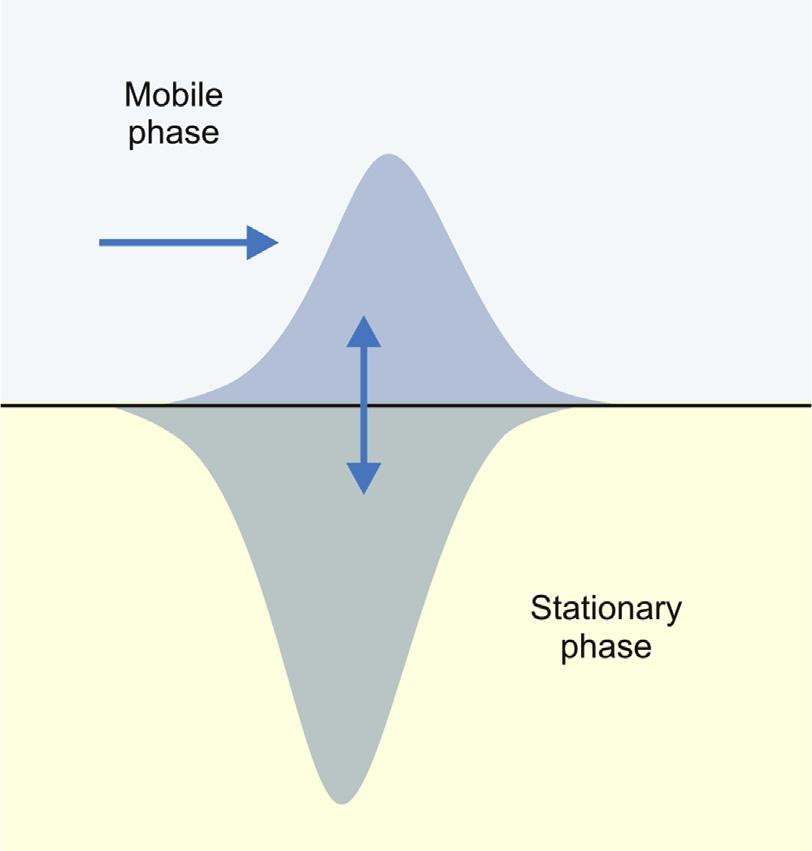Overviewandtheory
Contents
1.1 Historicaloverview2
1.1.1 Earlydays2
1.1.2 Gaschromatography3
1.1.3 Otherformsofchromatography5
1.1.4 Whyusechromatography?7
1.2 Chromatographyfundamentals8
1.2.1 Chemicalseparation8
1.2.2 Themobilephase10
1.2.3 Linearvelocityandvolumetric flow11
1.2.4 Thestationaryphase13
1.2.5 Retentiontimeandretentionfactor14
1.2.6 Resolution15
1.2.7 Selectivity,thealphavalue17
1.2.8 Theplatetheory17
1.2.9 Theratetheory20
1.2.9.1Longitudinaldiffusion 21
1.2.9.2Slowequilibration 21
1.2.9.3Flowpaths 23
1.2.9.4TheVanDeemterequation 24
1.2.10 Deadvolumesandunsweptvolumes26
1.2.10.1Feedvolume
1.2.11 Peaksymmetry28
1.2.12 Overloading29
1.2.13 Activesites31
1.2.14 Resolutionrevisited32
1.3 Gaslaws32
1.3.1 Measurementunits33
1.3.1.1Unitsofpressure
1.3.1.2Unitsofvolume
1.3.1.3Unitsoftemperature 34
1.3.2 PressureandBoyle’slaw34
1.3.3 TemperatureandCharles’ law36
1.3.4 VolumeandAvogadro’slaw37
1.3.5 PartialpressuresandDalton’slaw37
1.3.6 Theidealgaslaw39
1.3.7 Vapourpressure39
1.3.8 Vapourpressureandpartialpressure40 1.3.9 Standardtemperatureandpressure(STP)42 References43 Furtherreading43
Thischapterhasthreesectionsallofwhichiscoveredextensivelyinvarious books,articlesandon-linesitesontheInternet.Therearemanyexcellent booksonthehistoryofchromatographyandafewarelistedasreferencesto thischapter.Similarly,muchmoredetailonthetheoryofchromatography andgaslawsisavailableintextbooksaswellastheInternet.Againwe mentionafewbooksbuttherearemanymore.
1.1Historicaloverview
Itisalwaysprudenttolookbackatthebeginningandthedevelopments thatledtowhatwehavetoday.Althoughthereisalwaysmuchtolearn fromhistory,itfallsoutsidethescopeofthisbook.Howeveraverybrief andselectiveoverviewwouldprobablybeacceptable.
1.1.1Earlydays
Probablytheearliestseparationsresemblingchromatographywereperformedbydyechemistswhoseparatedmixturesofdyesbydippingtheends ofstring, filterpaperorclothintothedyeandallowingthedyetoseparate intobandsasitmovesupbycapillaryaction.Theprincipleofgas-solid adsorptionwasusedasearlyas1905byW.Ramseytoseparategaseson activatedcharcoalandcanbeseenasaforerunnerofgas-solidchromatography [1].Itis,however,generallyacceptedthatthe firstrealchromatographywasperformedbythe30yearoldRussianspecialistinbotany, biochemistry,andphysiology,MikhailSemenovichTswett.Hestarted experimentingwithpackingsolidpowderssuchascalciumcarbonateintoa verticalglasscolumn,applyingasmallamountofplantpigmentstothetop andthenwashingitthroughthecolumnwithasolvent.Thiscausedthe compoundstoseparateintocolouredbandsandhegavetheprocessthe namechromatography,probablyfromtheGreekwords chroma and graphein meaningcolourwriting.Columnchromatographyisstillpracticedinmuch thesamewaytodayalthoughcolourisnotusedtodetecttheseparated compounds.Hepresentedalectureentitled ‘OnaNewCategoryof AdsorptionPhenomenaanditsApplicationinBiochemicalAnalysis’ ata meetingoftheWarsawSocietyofNaturalScientistson21March1903.
Thisisaspecialdateinthehistoryofchromatographyasitisgenerally acceptedasthebirthdateofatechniquethatwouldbecometheleading separationtechniqueofthe20thcentury.
FollowingontheworkofTswettwastheuseofchromatographyby LeroySheldonPalmerwhousedthetechniquetoisolatepigments,mainly carotenoids,indairyproductsandbiologicaltissues.HisPhDthesiswas publishedin1913andhepublishedabookin1922ontheseparationof carotenoids.In1931RichardKuhnfromGermanyandhisstudentEdgar Lederer,fromFrance,usedthesametechniquetoseparatebiological molecules.Ittookanothertenyearsforthenextmajordevelopment. Whilestudyingtheaminoacidcompositionofwoolusingcountercurrent liquid-liquidseparationtwoBritishchemists,ArcherJ.P.Martinand RichardL.M.Synge,hitontheideatocoatoneofthephasesonasolid support.Usingsilicagelassupportandtightlybondedwaterastheone phaseheldstationarybythesupportandpercolatingchloroform,the mobilephase,throughittheycouldobtainremarkableseparations.This innovativeideaofpartitioningthecompoundstobeseparatedbetweentwo liquidphasesbecameknownaspartitionchromatography.Theyalso indicatedthatthemovingphasemightaswellbeagasbutdidnotpursue thisanyfurtheratthetime.TheyreceivedtheNobelPrizefortheirwork in1956.
Theyexperiencedproblemswithreproducibilityusingsilicageland continuedtheirworkusingpaperchromatographywhichwasmuch morerepeatableandhadbecomeverypopularduringthe1940’sforthe separationofaminoacidsandotherbiologicalcompounds.NikolayA. IzmaylovandMariaS.Shrayber,twoSovietscientists,coatedthestationary phaseonglassplatesandprocesseditsimilartopaperchromatographyto obtainexcellentseparations.
Thisworkwasreportedin1938butthetechniqueofthin-layer chromatographyonlybecamepopularafter1956whentheGerman scientistEgonStahlstartedworkingonit.
1.1.2Gaschromatography
The firstgas-solidchromatographywasperformedbytheAustrianscientist, ErikaCremerin1944usingsolidstationaryphasesfortheseparationof acetylenehydrogenationproducts.Oneofherstudents,FritzPrior,didhis PhDongaschromatography,presenteditsqualitativeabilitiesin1947and theypublishedtheworkin1951.Anotherstudent,RolandMüller, continuedthisworkbyinvestigatingthequalitativeandquantitativeaspects
andusedthetechniqueofdeterminingthepeakareabyusingthewidthof thepeakathalfthepeakheightthatisdescribedinChapter9 [2].
DuringthesametimeperiodA.J.P.MartinandanotherBritishchemist, AnthonyT.Jamescoatedparticleswithnon-volatileliquids,packedthem intothintubesandusedcompressedgastomovethecompoundstobe separatedthroughthecolumnsandtheyarethereforecreditedwiththe inventionofgas-liquidchromatography.Duetomuchhigherdiffusivities ofsolutesingasescomparedwithliquids,theequilibriumprocesses involvedinthechromatographicprocesswouldbemuchfastersothatthe columnswouldbemuchmoreefficientandseparationtimesmuchshorter. ThemeritsofthistechniquewererapidlyrealisedbypetrochemicalcompaniesandthelaboratoriesofBritishPetroleumandShellOilaswellas manyinstrumentcompaniesactivelypursuedthistechnology.
The firstgaschromatographswereratherclumsyinstrumentsthathad largediameterpackedcolumnsandinsensitivedetectors.Nocommercial instrumentswereavailableandthepioneersofthistechniquedesignedand builttheirowninstruments.Chromatogramswereplottedongraphpaper fromretentiontimemeasurementsmadewithastopwatchanddetector responsesreadfromgalvanometers.Laterchromatogramswereplottedon chartrecordersandpeakareasmeasuredbycuttingoutthepaperand weighingthepieceofchart.A flurryoffundamentalresearchandinstrumentdevelopmentfollowedandestablishedthegaschromatography technique firmlyasoneofthemostversatiletoolsavailabletoanalytical scientists.
TheSwissmathematicianandphysicistMarcelJ.E.Golaywhoatthe timeworkedasaconsultantforthePerkin-ElmerCorporationdida theoreticalstudyofgaschromatographycolumns.Hecametothe conclusionthatverylongcolumnswithsmalldiametersofwhichtheinner surfaceiscoatedwithathinlayerofnon-volatileliquidwouldbecapableof betterseparationsthancouldbeobtainedwiththepackedcolumns.Mostof thecolumnsusedtodayareso-calledopentubularcolumnsalsoknownas capillarycolumnsandwereearlierknownasGolaycolumns.Thesecolumnsaresoefficientthatitisnotuncommontoseparateseveralhundred compoundsinasuitablesamplewithinanhourorless.Notsurprisingly, thesecolumnsrevolutionisedgaschromatography.
Oneofthemajorlimitationsinintroducingcapillarycolumnswasthat therewerenodetectorssensitiveenoughtodetecttheextremelysmall amountsofcompoundsexitingthecolumn.Fortunately,ataboutthissame time,detectorswithextremelylowlimitsofdetectionbecameavailable,
whichwerecompatiblewiththesmallsamplesizesrequiredbythesenew columns.Themostpopularoftheseisthe flameionisationdetectororFID.
TheFlameIonisationdetectorwasindependentlydevelopedatthe CentralResearchLaboratoriesoftheImperialChemicalIndustriesof AustraliaandNewZealand(ICIANZ)andthedepartmentofPhysical ChemistryoftheUniversityofPretoriainSouthAfricain1957.The ICIANZgroupofI.GMacWilliamandR.A.Dewarfollowedtheirwork tocompletionandarethereforegenerallyacceptedastheinventorsofthe FIDsincethePretoriagroupofJ.Harley,W.NelandV.Pretoriusdidnot pursuetheiroriginalworkatthattime.Theeaseofuse,highsensitivity, largelinearrangeandpredictableresponseoftheFIDhasmadeitintothe mostwidelyusedGCdetectortoday.
Whendiscussingthetheoryofchromatographyitisimpossiblenotto mentiontheso-calledVanDeemterequation.Thisfamousequation describestheparametersthataffectcolumnefficiencyandprovidesthe optimum flowrateatwhichoptimumefficiencycanbeattainedfroma specificcolumn.ItwastheresultofworkdonebyDrJ.J.vanDeemterand hiscolleaguesA.KlinkenbergandF.J.ZuiderwegatShellResearch, Amsterdam,Netherlandsinofferingatheorythatdescribedthedispersion inpackedchromatographycolumns.Itwasvalidatedandpresentedby A.I.M.KeulemansandA.Kwantesin1956attheFirstInternational SymposiumonGasChromatography.TheVanDeemterequationapplies equallywelltopackedandcapillaryGCcolumnsaswellastoliquid chromatographyandremainsthecornerstoneofchromatographictheory. Chromatographyisoneofthefewscienceswherepracticaldevelopments havebeenpredictedbytheoreticalconsiderations.
1.1.3Otherformsofchromatography
Althoughthisbookdealswithgaschromatographyitisprobablyprudentto brieflyacknowledgethepioneersofotherformsofchromatographyaswell.
PerFlodinandJerkerParkerdevelopedcellulosebasedpolymerswith poresofaconsistentsizein1959.Theseprovedidealforseparatingvery largemoleculessuchasproteinswhichwoulddiffuseintoandoutofthe poreswiththedifferentsizesofmoleculesspendingmoreorlesstimeinthe poresthusallowingthemtobeseparatedbasedonsize.Thiswasknownas gelpermeationchromatographyandismostoftencalledsizeexclusion chromatography.SizeexclusionchromatographyusingMolecularsievesis quiteprevalentintheseparationofgasesbygaschromatographyandwillbe discussedinsomedetaillaterinthisbook.
AnAmericanscientist,J.CalvinGiddingsusedthegaschromatography theorytoproposetheconditionsthatwouldgivesimilarseparationsusing liquidchromatography.In1964hedemonstratedthisusingsmalldiameter columnspackedwithadsorptivesolidsandthusthetechniqueofhigh performanceliquidchromatography(HPLC)wasborn.Obviouslypumps thatcoulddeliverasteadyhighpressuresolvent flowanddetectorscapable ofdetectingthesmallamountsofcompoundsexitingthecolumnhadtobe developed.Liquidphaseswereinitiallynotpossibleastheywerewashedoff bythesolventsusedasmobilephase.TheGermanIstvánHalászsucceeded inbondingliquidsasathin filmtothestationaryphaseandthisturned HPLCintoanexceptionallyversatileanalyticaltool.
Ionexchangechromatographyusingzeolitesasadsorbents,whichare fancytypesofrocks,was firstreportedin1938byT.I.TaylorandHarold C.Urey.DuringtheManhattanprojectthismethodwasusedtoseparate the fissionproductsofuraniumandotherelementsproducedbytheexplosions.Ithassinceevolvedandiswidelyusedinchemistry,biochemistry, clinicalandwateranalysis.Modernionexchangeresinshavemadeion exchangechromatographyintoaveryusefultoolfortheseparationofboth organicandinorganicionicspecies.
ThegapbetweenGCandHPLCwasbridgedin1962whenErnst Klesperandco-workersseparatedporphyrinsusingadensegasorsupercritical fluid.TheBritishscientistJamesLovelockhadpredictedin1958 thatgasesathighpressurecouldbeusedasmobilephasessincetheyare capableofdissolvingsomecompounds.Supercritical fluidchromatography usessupercritical fluidssuchascarbondioxideatpressuresoftypically 40MPa(400atm)althoughGiddingsandothershaveusedpressuresashigh as200MPa(2000atm)toseparatepolymers,sugars,carotenoidsandmany morespecies.PressureprogrammingisusedinSFCsimilartotheway temperatureprogrammingisusedinGC.
PedroCautrecasasandhiscolleaguesdescribedaffinitychromatography in1968.Thistechniqueprovidestheultimateselectivityasitusesasubstrate boundtothesolidphaseontowhichbiomoleculessuchasspecificenzymes willattachthemselveswhileothercompoundsarewashedoutofthe column.Thecapturedenzymesarethenreleasedbychangingthemobile phasecomposition.
Thistypeof ‘digitalchromatography’ inwhichcompoundseither moveordonotmoveasopposedtothecontinuouselutioninnormal chromatographyisalsousedto ‘extract’ specificclassesofcompoundsfrom complexmatricesinsolidphaseextraction.
Therearemanyotherswhomadegreatcontributionstochromatographyandwhoprobablydeservetohavetheirnamesmentionedbutsince thisbookisnotaboutthehistoryofchromatography,wewillstophere.It isalsointerestingtoseethatmajorcontributionsweremadefromavast varietyofcountries.Therearemanyexcellentreferencesonthehistoryof chromatographyanditisquitefascinatingtoread.Aninternetsearchwill revealmanyofthese.
Itisnoexaggerationthatthecontributionofchromatographytothe successfuldevelopmentofchemistry,aswellasbiosciences,justcannotbe overestimated.
1.1.4Whyusechromatography?
Theanswerliesintheneedforseparation.Toselectivelydeterminethe componentsofasamplethatcontainsamixtureofchemicalcompoundsit isvitaltoseparatethecompoundsinordertodeterminethemqualitatively orquantitatively.Selectivitycansometimesbeobtainedbyusingamethod ofdetectionthatwillmeasureaphysicalorchemicalpropertyofthe compoundsofinteresttotheexclusionofallothercomponentsthatmaybe presentinthesample.Theotherwayistophysicallyseparatethesample componentspriortodetectionwithalessselectivedetectorandthisiswhat isoftendoneinchromatography.
Itisclearthatsamplessuchasplantextracts,crudeoilandbloodplasma areextremelycomplexandcontainavarietyofcompoundsthatsimply cannotbeindividuallydeterminedbyanysingletechnique.Thesesamples thereforehavetobesimplifiedtomakethemamenabletothedifferent methodsofanalysis,eachselectedforitsinherentabilitytodetermine certainclassesofcompounds.Followingidentificationandquantitationof thesamplecomponentsthecombinedanalysesenabletheanalystto characterisetheoriginalsample.Inmanycasestheanalytescannotbe recoveredafteranalysisastheyaredestroyedintheprocessbutthereare non-destructivemethodsthatallowtheanalysttolookatdifferentclasses ofcompoundssuccessivelyforexample,whenathermalconductivity detectorisusedbeforea flameionisationdetectortoselectivelydetermine thepermanentandhydrocarbongasesrespectively.Chromatographyis fundamentallyaseparationtechniqueandtheidentificationofthepeaks obtainedcanonlybedonebycomparisonwithsuitablestandards.The quantitativeinformationobtainedfromtheGCdetectordoesnot providearesultinuseableunitsasinthecaseofabalanceorpHmeter. Insteadthesignalobtainedmustbequantifiedrelativetosuitablestandards.
Itisthereforeimperative,asinanychemicalinvestigation,tohaveanidea ofwhatcompounds,orcompoundclasses,mustbedeterminedbefore selectingananalysistechnique.
1.2Chromatographyfundamentals
Thereareanumberofimportantfundamentalprinciplesintheunderstandingofchromatographybutevenmoresointhepracticeofit.These conceptsbecomesecondnaturetochromatographersandtheydevelopa kindof ‘gutfeel’ forthesystemstheyworkwith.Thisiswhatprobablygave birthtothesayingthatchromatographersusethescienceofchromatographytopracticetheartofchromatography.
1.2.1Chemicalseparation
Chemicalseparationrequiresphaseseparation.Toseparateanytwo chemicalcompoundstheyhavetobeindifferentphases.Forexample,we havetwocompounds,oneofwhichissolubleandtheothernot,the firstis dissolvedandseparatedfromtheinsolubleoneby filtration.Allchemical separationsutilisephaseseparationinoneformoranothersuchasprecipitatingproteinsfromasolutionorusingimmisciblesolventstoseparate polarfromnon-polarcompoundsbyliquid-liquidextraction.Inthelatter casethetwoliquidsareshakentogetherforsometimetogetintimate contactbetweenthephasesandtoestablishequilibriumbetweenthephases priortolettingitstandtoseparate.
Themechanismofphasecontact,equilibriumandseparationisalsoused inchromatographyalbeitinaslightlydifferentway.Inchromatography onephaseisheldstationaryeitherasasolidorbycoatingitontoparticlesor ontheinsidesurfaceofthecolumn.Theotherphaseisthegasphasewhich transportsthesampletobeseparatedandisallowedtomoveoverthe stationaryphase.Theinteractionbetweenthephaseswilldependprimarily onthetypeofstationaryandmobilephases.Obviouslythephasesmust beincontactforlongenoughtoensurethatsomeinteractionwiththe stationaryphasecantakeplaceasshownin Fig.1.1.Thereforethe flowrate ofthemobilephasecannotbetoofast.Ontheotherhand,diffusionwill causetheareaofmaximumconcentrationtospreadoutcausingbroader peakswhichmeansthatthe flowrateofthemobilephasecannotbetoo sloweither,butalotmoreaboutthislater.
Therearemanydifferenttypesofchromatographyandtheyarenormallycharacterisedbythephasesinvolved.Ifbothphasesareliquid,itis
Fig.1.1 Agraphicillustrationoftheinteractionofthesamplecomponentwiththe stationaryphase.
calledliquid-liquidchromatographyandthisisthecommonphasecombinationusedinHPLCandTLCwhileliquid-solidchromatography,in whichthestationaryphaseisasolid,isusedmostlyingel-filtrationchromatographyfortheseparationofproteins,peptidesandpolymers.The molecularinteractionmechanismisoftenaddedtofurthercharacterisethe typeofchromatographyasinReversedPhasechromatographyandIon Exchangechromatography.NormalPhasechromatographyisdefinedas separationwithaninertornon-polarmobilephasesuchasgaschromatography.However,inReversedPhasechromatographyasistypicallyused inHPLC,themobilephaseismorepolarthanthestationaryphaseand thereforeplaysaverysignificantroleintheseparation.Ingaschromatographythestationaryphasemaybeasolid,asisoftenusedingasanalysis, orahighboilingliquidthatmaybeeithercoatedonapowderedsupportor coatedontheinsideofthecolumnwall.Gas-liquidchromatography(GLC) isusedinarguablymorethan90%ofallGCapplicationsbutithaslittle applicationingasanalysis.Ingasanalysis,gas-solidchromatography(GSC) ismoreoftenusedalthoughGLCcolumnsareusedwhenhigherboiling compoundsareentrainedinagaseousstreamforexample,higherhydrocarbonsinliquefiedpetroleumgas.Insomecasesithappensthatmore thanoneseparationmechanismactssimultaneouslyduringtheseparation.
Another random document with no related content on Scribd:
above-board. "There's just one thing. Would you have any objection to performing at the village concert?"
"I should enjoy it."
"They're sure to rope you in. I thought you and I might do the Quarrel Scene from JuliusCæsaragain."
"Excellent."
"And this time," said Hugo generously, "you can be Brutus."
"No, no," said Ronnie, moved.
"Yes, yes."
"Very well. Then fix things up with this American bloke, and leave the rest to me. Shall I like your uncle?"
"No," said Hugo confidently.
"Ah well," said Mr. Fish equably, "I don't for a moment suppose he'll like me."
IV
The respite afforded to their patrons' ear drums by the sudden cessation of activity on the part of the Buddies proved of brief duration. Men like these ex-collegians, who have really got the saxophone virus into their systems, seldom have long lucid intervals between the attacks. Very soon they were at it again, and Mr. Molloy, rising, led Pat gallantly out onto the floor. His daughter, following them with a bright eye as she busied herself with a lip stick, laughed amusedly.
"She little knows!"
John, like Pat a short while before, had fallen into a train of thought. From this he now woke with a start to the realization that he was
alone with this girl and presumably expected by her to make some effort at being entertaining.
"I beg your pardon?" he said.
Even had he been less preoccupied, he would have found small pleasure in this tête-à-tête. Miss Molloy—her father addressed her as Dolly—belonged to the type of girl in whose society a diffident man is seldom completely at ease. There hung about her like an aura a sort of hard glitter. Her challenging eyes were of a bright hazel— beautiful but intimidating. She looked supremely sure of herself.
"I was saying," she explained, "that your Girl Friend little knows what she has taken on, going out to step with Soapy."
"Soapy?"
It seemed to John that his companion had momentarily the appearance of being a little confused.
"My father, I mean," she said quickly. "I call him Soapy." "Oh?" said John. He supposed the practice of calling a father by a nickname in preference to the more old-fashioned style of address was the latest fad of the Modern Girl.
"Soapy," said Miss Molloy, developing her theme, "is full of Sex Appeal, but he has two left feet." She emitted another little gurgle of laughter. "There! Would you just look at him now!"
John was sorry to appear dull, but, eyeing Mr. Molloy as requested, he could not see that he was doing anything wrong. On the contrary, for one past his first youth, the man seemed to him enviably efficient.
"I'm afraid I don't know anything about dancing," he said apologetically.
"At that, you're ahead of Soapy. He doesn't even suspect anything. Whenever I get into the ring with him and come out alive I reckon I've broke even. It isn't so much his dancing on my feet that I mind
—it's the way he jumps on and off that slays me. Don't you ever hoof?"
"Oh, yes. Sometimes. A little."
"Well, come and do your stuff, then. I can't sit still while they're playing that thing."
John rose reluctantly. Their brief conversation had made it clear to him that in the matter of dancing this was a girl of high ideals, and he feared he was about to disappoint her. If she regarded with derision a quite adequate performer like Mr. Molloy, she was obviously no partner for himself. But there was no means of avoiding the ordeal. He backed her out into mid-stream, hoping for the best.
Providence was in a kindly mood. By now the floor had become so congested that skill was at a discount. Even the sallow youths with the marcelled hair and the india-rubber legs were finding little scope to do anything but shuffle. This suited John's individual style. He, too, shuffled: and, playing for safety, found that he was getting along better than he could have expected. His tension relaxed, and he became conversational.
"Do you often come to this place?" he asked, resting his partner against the slim back of one of the marcelled-hair brigade who, like himself, had been held up in the traffic block.
"I've never been here before. And it'll be a long time before I come again. A more gosh-awful aggregation of yells for help, than this gang of whippets," said Miss Molloy, surveying the company with a critical eye, "I've never seen. Look at that dame with the eyeglass."
"Rather weird," agreed John.
"A cry for succour," said Miss Molloy severely. "And why, when you can buy insecticide at any drug store, people let these boys with the shiny hair go around loose beats me."
John began to warm to this girl. At first, he had feared that he and she could have little in common. But this remark told him that on certain subjects, at any rate, they saw eye to eye. He, too, had felt
an idle wonder that somebody did not do something about these youths.
The Buddies had stopped playing: and John, glowing with the strange new spirit of confidence which had come to him, clapped loudly for an encore.
But the Buddies were not responsive. Hitherto, a mere tapping of the palms had been enough to urge them to renewed epileptic spasms; but now an odd lethargy seemed to be upon them, as if they had been taking some kind of treatment for their complaint. They were sitting, instruments in hand, gazing in a spellbound manner at a square-jawed person in ill-fitting dress clothes who had appeared at the side of Mr. Baermann. And the next moment, there shattered the stillness a sudden voice that breathed Vine Street in every syllable.
"Ladies and gentlemen," boomed the voice, proceeding, as nearly as John could ascertain, from close to the main entrance, "will you kindly take your seats."
"Pinched!" breathed Miss Molloy in his ear. "Couldn't you have betted on it!"
Her diagnosis was plainly correct. In response to the request, most of those on the floor had returned to their tables, moving with the dull resignation of people to whom this sort of thing has happened before: and, enjoying now a wider range of vision, John was able to see that the room had become magically filled with replicas of the sturdy figure standing beside Mr. Baermann. They were moving about among the tables, examining with an offensive interest the bottles that stood thereon and jotting down epigrams on the subject in little notebooks. Time flies on swift wings in a haunt of pleasure like the Mustard Spoon, and it was evident that the management, having forgotten to look at its watch, had committed the amiable error of serving alcoholic refreshments after prohibited hours.
"I might have known," said Miss Molloy querulously, "that something of the sort was bound to break loose in a dump like this."
John, like all dwellers in the country as opposed to the wicked inhabitants of cities, was a law-abiding man. Left to himself, he would have followed the crowd and made for his table, there to give his name and address in the sheepish undertone customary on these occasions. But he was not left to himself. A moment later it had become plain that the dashing exterior of Miss Molloy was a true index to the soul within. She grasped his arm and pulled him commandingly.
"Snap into it!" said Miss Molloy.
The "it" into which she desired him to snap was apparently a small door that led to the club's service quarters. It was the one strategic point not yet guarded by a stocky figure with large feet and an eye like a gimlet. To it his companion went like a homing rabbit, dragging him with her. They passed through; and John, with a resourcefulness of which he was surprised to find himself capable, turned the key in the lock.
"Smooth!" said Miss Molloy approvingly. "Nice work! That'll hold them for a while."
It did. From the other side of the door there proceeded a confused shouting, and somebody twisted the handle with a good deal of petulance, but the Law had apparently forgotten to bring its axe with it to-night, and nothing further occurred. They made their way down a stuffy passage, came presently to a second door, and, passing through this, found themselves in a backyard, fragrant with the scent of old cabbage stalks and dish water.
Miss Molloy listened. John listened. They could hear nothing but a distant squealing and tooting of horns, which, though it sounded like something out of the repertoire of the Collegiate Buddies, was in reality the noise of the traffic in Regent Street.
"All quiet along the Potomac," said Miss Molloy with satisfaction. "Now," she added briskly, "if you'll just fetch one of those ash cans and put it alongside that wall and give me a leg-up and help me round that chimney and across that roof and down into the next
yard and over another wall or two, I think everything will be more or less jake."
VJohn sat in the lobby of the Lincoln Hotel in Curzon Street. A lifetime of activity and dizzy hustle had passed, but it had all been crammed into just under twenty minutes, and, after seeing his fair companion off in a taxicab, he had made his way to the Lincoln, to ascertain from a sleepy night porter that Miss Wyvern had not yet returned. He was now awaiting her coming.
She came some little while later, escorted by Hugo. It was a fair summer night, warm and still, but with her arrival a keen east wind seemed to pervade the lobby. Pat was looking pale and proud, and Hugo's usually effervescent demeanour had become toned down to a sort of mellow sadness. He had the appearance of a man who has recently been properly ticked off by a woman for Taking Me to Places Like That.
"Oh, hullo, John," he murmured in a low, bedside voice. He brightened a little, as a man will who, after a bad quarter of an hour with an emotional girl, sees somebody who may possibly furnish an alternative target for her wrath. "Where did you get to? Left early to avoid the rush?"
"It was this way ..." began John. But Pat had turned to the desk, and was asking the porter for her key. If a female martyr in the rougher days of the Roman Empire had had occasion to ask for a key, she would have done it in just the voice which Pat employed. It was not a loud voice, nor an angry one,—just the crushed, tortured voice of a girl who has lost her faith in the essential goodness of humanity.
"You see ..." said John.
"Are there any letters for me?" asked Pat.
"No, no letters," said the night porter; and the unhappy girl gave a little sigh, as if that was just what might be expected in a world where men who had known you all your life took you to Places which they ought to have Seen from the start were just DrinkingHells, while other men, who also had known you all your life, and, what was more, professed to love you, skipped through doors in the company of flashy women and left you to be treated by the police as if you were a common criminal.
"What happened," said John, "was this...."
"Good night," said Pat.
She followed the porter to the lift, and Hugo, producing a handkerchief, dabbed it lightly over his forehead.
"Dirty weather, shipmate!" said Hugo. "A very deep depression off the coast of Iceland, laddie."
He placed a restraining hand on John's arm, as the latter made a movement to follow the Snow Queen.
"No good, John," he said gravely. "No good, old man, not the slightest. Don't waste your time trying to explain to-night. Hell hath no fury like a woman scorned, and not many like a girl who's just had to give her name and address in a raided night club to a plainclothes cop who asked her to repeat it twice and then didn't seem to believe her."
"But I want to tell her why...."
"Never tell them why. It's no use. Let us talk of pleasanter things. John, I have brought off the coup of a lifetime. Not that it was my idea. It was Ronnie Fish who suggested it. There's a fellow with a brain, John. There's a lad who busts the seams of any hat that isn't a number eight."
"What are you talking about?"
"I'm talking about this amazingly intelligent idea of old Ronnie's. It's absolutely necessary that by some means Uncle Lester shall be persuaded to cough up five hundred quid of my capital to enable me to go into a venture second in solidity only to the Mint. The one person who can talk him into it is Ronnie. So Ronnie's coming to Rudge."
"Oh?" said John, uninterested.
"And to prevent Uncle Lester making a fuss about this, I've invited old man Molloy and daughter to come and visit us as well. That was Ronnie's big idea. Thos. is rolling in money, and, once Uncle Lester learns that, he won't kick about Ronnie being there. He loves having rich men around. He likes to nuzzle them."
"Do you mean," cried John, "that that girl is coming to stay at Rudge?"
He was appalled. Limpidly clear though his conscience was, he was able to see that his rather spectacular association with Miss Dolly Molloy had displeased Pat, and the last thing he wished for was to be placed in a position which was virtually tantamount to hobnobbing with the girl. If she came to stay at Rudge, Pat might think.... What might not Pat think?
He became aware that Hugo was speaking to him in a quiet, brotherly voice.
"How did all that come out, John?"
"All what?"
"About Pat. Did she tell you that I paved the way?"
"She did! And look here...."
"All right, old man," said Hugo, raising a deprecatory hand. "That's absolutely all right. I don't want any thanks. You'd have done the same for me. Well, what has happened? Everything pretty satisfactory?"
"Satisfactory!"
"Don't tell me she turned you down?"
"If you really want to know, yes, she did."
Hugo sighed.
"I feared as much. There was something about her manner when I was paving the way that I didn't quite like. Cold. Not responsive. A bit glassy-eyed. What an amazing thing it is," said Hugo, tapping a philosophical vein, "that in spite of all the ways there are of saying Yes, a girl on an occasion like this nearly always says No. An American statistician has estimated that, omitting substitutes like 'All right,' 'You bet,' 'O.K.,' and nasal expressions like 'Uh-huh,' the English language provides nearly fifty different methods of replying in the affirmative, including Yeah, Yeth, Yum, Yo, Yaw, Chess, Chass, Chuss, Yip, Yep, Yop, Yup, Yurp...."
"Stop it!" cried John forcefully.
Hugo patted him affectionately on the shoulder.
"All right, John. All right, old man. I quite understand. You're upset. A little on edge, yes? Of course you are. But listen, John, I want to talk to you very seriously for a moment, in a broad-minded spirit of cousinly good will. If I were you, laddie, I would take myself firmly in hand at this juncture. You must see for yourself by now that you're simply wasting your time fooling about after dear old Pat. A sweet girl, I grant you—one of the best: but if she won't have you she won't, and that's that. Isn't it or is it? Take my tip and wash the whole thing out and start looking round for someone else. Now, there's Miss Molloy, for instance. Pretty. Pots of money. If I were you, while she's at Rudge, I'd have a decided pop at her. You see, you're one of those fellows that Nature intended for a married man right from the start. You're a confirmed settler-down, the sort of chap that likes to roll the garden lawn and then put on his slippers and light a pipe and sit side by side with the little woman, sharing a twin set of head phones. Pull up your socks, John, and have a dash at this Molloy girl. You'd be on velvet with a rich wife."
At several points during this harangue John had endeavoured to speak, and he was just about to do so now, when there occurred that which rendered speech impossible. From immediately behind them, as they stood facing the door, a voice spoke.
"I want my bag, Hugo."
It was Pat. She was standing within a yard of them. Her face was still that of a martyr, but now she seemed to suggest by her expression a martyr whose tormentors have suddenly thought up something new.
"You've got my bag," she said.
"Oh, ah," said Hugo.
He handed over the beaded trifle, and she took it with a cold aloofness. There was a pause.
"Well, good night," said Hugo.
"Good night," said Pat.
"Good night," said John.
"Good night," said Pat.
She turned away, and the lift bore her aloft. Its machinery badly needed a drop of oil, and it emitted, as it went, a low wailing sound that seemed to John like a commentary on the whole situation.
VI
Some half a mile from Curzon Street, on the fringe of the Soho district, there stands a smaller and humbler hotel named the Belvidere. In a bedroom on the second floor of this, at about the moment when Pat and Hugo had entered the lobby of the Lincoln, Dolly Molloy sat before a mirror, cold-creaming her attractive face.
She was interrupted in this task by the arrival of the senatorial Thomas G.
"Hello, sweetie-pie," said Miss Molloy. "There you are."
"Yes," replied Mr. Molloy. "Here I am."
Although his demeanour lacked the high tragedy which had made strong men quail in the presence of Pat Wyvern, this man was plainly ruffled. His fine features were overcast and his frank gray eyes looked sombre.
"Gee! If there's one thing in this world I hate," he said, "it's having to talk to policemen."
"What happened?"
"Oh, I gave my name and address. A name and address, that is to say. But I haven't got over yet the jar it gave me seeing so many cops all gathered together in a small room. And that's not all," went on Mr. Molloy, ventilating another grievance. "Why did you make me tell those folks you were my daughter?"
"Well, sweetie, it sort of cramps my style, having people know we're married."
"What do you mean, cramps your style?"
"Oh, just cramps my style."
"But, darn it," complained Mr. Molloy, going to the heart of the matter, "it makes me out so old, folks thinking I'm your father." The rather pronounced gap in years between himself and his young bride was a subject on which Soapy Molloy was always inclined to be sensitive. "I'm only forty-two."
"And you don't seem that, not till you look at you close," said Dolly with womanly tact. "The whole thing is, sweetie, being so dignified, you can call yourself anybody's father and get away with it."
Mr. Molloy, somewhat soothed, examined himself, not without approval, in the mirror.
"I do look dignified," he admitted.
"Like a professor or something."
"That isn't a bald spot coming there, is it?"
"Sure it's not. It's just the way the light falls."
Mr. Molloy resumed his examination with growing content.
"Yes," he said complacently, "that's a face which for business purposes is a face. I may not be the World's Sweetheart, but nobody can say I haven't got a map that inspires confidence. I suppose I've sold more bum oil stock to suckers with it than anyone in the profession. And that reminds me, honey, what do you think?"
"What?" asked Mrs. Molloy, removing cream with a towel.
"We're sitting in the biggest kind of luck. You know how I've been wanting all this time to get hold of a really good prospect—some guy with money to spend who might be interested in a little oil deal? Well, that Carmody fellow we met to-night has invited us to go and visit at his country home."
"You don't say!"
"I do say!"
"Well, isn't that the greatest thing. Is he rich?"
"He's got an uncle that must be, or he couldn't be living in a place like he was telling me. It's one of those stately homes of England you read about."
Mrs. Molloy mused. The soft smile on her face showed that her day dreams were pleasant ones.
"I'll have to get me some new frocks ... and hats ... and shoes ... and stockings ... and ..."
"Now, now, now!" said her husband, with that anxious alarm which husbands exhibit on these occasions. "Be yourself, baby! You aren't going to stay at Buckingham Palace."
"But a country-house party with swell people...."
"It isn't a country-house party. There's only the uncle besides those two boys we met to-night. But I'll tell you what. If I can plant a good block of those Silver River shares on the old man, you can go shopping all you want."
"Oh, Soapy! Do you think you can?"
"Do I think I can?" echoed Mr. Molloy scornfully. "I don't say I've ever sold Central Park or Brooklyn Bridge to anybody, but if I can't get rid of a parcel of home-made oil stock to a guy that lives in the country I'm losing my grip and ought to retire. Sure, I'll sell him those Silver Rivers, honey. These fellows that own these big estates in England are only glorified farmers when you come right down to it, and a farmer will buy anything you offer him, just so long as it's nicely engraved and shines when you slant the light on it."
"But, Soapy...."
"Now what?"
"I've been thinking. Listen, Soapy. A home like this one where we're going is sure to have all sorts of things in it, isn't it? Pictures, I mean, and silver and antiques and all like that. Well, why can't we, once we're in the place, get away with them and make a nice cleanup?"
Mr. Molloy, though conceding that this was the right spirit, was obliged to discourage his wife's pretty enthusiasm.
"Where could you sell that sort of stuff?"
"Anywhere, once you got it over to the other side. New York's full of rich millionaires who'll buy anything and ask no questions, just so long as it's antiques."
Mr. Molloy shook his head.
"Too dangerous, baby. If all that stuff left the house same time as we did, we'd have the bulls after us in ten minutes. Besides, it's not
in my line. I've got my line, and I like to stick to it. Nobody ever got anywhere in the long run by going outside of his line."
"Maybe you're right."
"Sure I'm right. A nice conservative business, that's what I aim at."
"But suppose when we get to this joint it looks dead easy?"
"Ah! Well then, I'm not saying. All I'm against is risks. If something's handed to you on a plate, naturally no one wouldn't ever want to let it get past them."
And with this eminently sound commercial maxim Mr. Molloy reached for his pyjamas and prepared for bed. Something attempted, something done, had earned, he felt, a night's repose.
CHAPTER V I
Some years before the date of the events narrated in this story, at the time when there was all that trouble between the aristocratic householders of Riverside Row and the humbler dwellers in Budd Street (arising, if you remember, from the practice of the latter of washing their more intimate articles of underclothing and hanging them to dry in back gardens into which their exclusive neighbours were compelled to gaze every time they looked out of windows), the vicar of the parish, the Rev. Alistair Pond-Pond, always a happy phrase-maker, wound up his address at the annual village sports of Rudge with an impressive appeal to the good feeling of those concerned.
"We must not," said the Reverend Alistair, "consider ourselves as belonging to this section of Rudge-in-the-Vale or to that section of Rudge-in-the-Vale. Let us get together. Let us recollect that we are
all fellow-members of one united community. Rudge must be looked on as a whole. And what a whole it is!"
With the concluding words of this peroration Pat Wyvern, by the time she had been home a little under a week, found herself in hearty agreement. Walking with her father along High Street on the sixth morning, she had to confess herself disappointed with Rudge. There are times in everyone's experience when Life, after running merrily for a while through pleasant places, seems suddenly to strike a dull and depressing patch of road: and this was what was happening now to Pat. The sense, which had come to her so strongly in the lobby of the Lincoln Hotel in Curzon Street, of being in a world unworthy of her—a world cold and unsympathetic and full of an inferior grade of human being, had deepened. Her homecoming, she had now definitely decided, was not a success.
Elderly men with a grievance are seldom entertaining companions for the young, and five days of the undiluted society of Colonel Wyvern had left Pat with the feeling that, much as she loved her father, she wished he would sometimes change the subject of his conversation. Had she been present in person she could not have had a fuller grasp of the facts of that dynamite outrage than she now possessed.
But this was not all. After Mr. Carmody's thug-like behaviour on that fatal day, she was given to understand, the Hall and its grounds were as much forbidden territory to her as the piazza of the townhouse of the Capulets would have been to a young Montague. And, though, being a modern girl, she did not as a rule respond with any great alacrity to parental mandates, she had her share of clan loyalty and realized that she must conform to the rules of the game.
Accordingly she had not been within half a mile of the Hall since her arrival, and, having been accustomed for fourteen years to treat the place and its grounds as her private property, found Rudge, with a deadline drawn across the boundaries of Mr. Carmody's park, a poor sort of place. Unlovable character though Mr. Carmody was in many
respects, she had always been fond of him, and she missed seeing him. She also missed seeing Hugo. And, as for John, not seeing him was the heaviest blow of all.
From the days of her childhood, John had always been her stand-by. Men might come and men might go, but John went on for ever. He had never been too old, like Mr. Carmody, or too lazy, like Hugo, to give her all the time and attention she required, and she did think that, even though there was this absurd feud going on, he might have had the enterprise to make an opportunity of meeting her. As day followed day her resentment grew, until now she had reached the stage when she was telling herself that this was simply what from a knowledge of his character she might have expected. John— she had to face it was a jellyfish. And if a man is a jellyfish, he will behave like a jellyfish, and it is at times of crisis that his jellyfishiness will be most noticeable.
It was conscience that had brought Pat to the High Street this morning. Her father had welcomed her with such a pathetic eagerness, and had been so plainly pleased to see her back that she was ashamed of herself for not feeling happier. And it was in a spirit of remorse that now, though she would have preferred to stay in the garden with a book, she had come with him to watch him buy another bottle of Brophy's Paramount Elixir from Chas. Bywater, Chemist.
Brophy, it should be mentioned, had proved a sensational success. His Elixir was making the local gnats feel perfect fools. They would bite Colonel Wyvern on the face and stand back, all ready to laugh, and he would just smear Brophy on himself and be as good as new. It was simply sickening, if you were a gnat; but fine, of course, if you were Colonel Wyvern, and that just man, always ready to give praise where praise was due, said as much to Chas. Bywater.
"That stuff," said Colonel Wyvern, "is good. I wish I'd heard of it before. Give me another bottle."
Mr. Bywater was delighted—not merely at this rush of trade, but because, good kindly soul, he enjoyed ameliorating the lot of others.
"I thought you would find it capital, Colonel. I get a great many requests for it. I sold a bottle yesterday to Mr. Carmody, senior."
Colonel Wyvern's sunniness vanished as if someone had turned it off with a tap.
"Don't talk to me about Mr. Carmody," he said gruffly.
"Quite," said Chas. Bywater.
Pat bridged a painful silence.
"Is Mr. Carmody back, then?" she asked. "I heard he was at some sort of health place."
"Healthward Ho, miss, just outside Lowick."
"He ought to be in prison," said Colonel Wyvern.
Mr. Bywater stopped himself in the nick of time from saying "Quite," which would have been a deviation from his firm policy of never taking sides between customers.
"He returned the day before yesterday, miss, and was immediately bitten on the nose by a mosquito."
"Thank God!" said Colonel Wyvern.
"But I sold him one of the three-and-sixpenny size of the Elixir," said Chas. Bywater, with quiet pride, "and a single application completely eased the pain."
Colonel Wyvern said he was sorry to hear it, and there is no doubt that conversation would once more have become difficult had there not at this moment made itself heard from the other side of the door a loud and penetrating sniff.
A fatherly smile lit up Chas. Bywater's face.
"That's Mr. John's dog," he said, reaching for the cough drops.
Pat opened the door and the statement was proved correct. With a short wooffle, partly of annoyance at having been kept waiting and partly of happy anticipation, Emily entered, and seating herself by the counter, gazed expectantly at the chemist.
"Hullo, Emily," said Pat.
Emily gave her a brief look in which there was no pleased recognition, but only the annoyance of a dog interrupted during an important conference. She then returned her gaze to Mr. Bywater.
"What do you say, doggie?" said Mr. Bywater, more paternal than ever, poising a cough drop.
"Oh, Hell! Snap into it!" replied Emily curtly, impatient at this foolery.
"Hear her speak for it?" said Mr. Bywater. "Almost human, that dog is."
Colonel Wyvern, whom he had addressed, did not seem to share his lively satisfaction. He muttered to himself. He regarded Emily sourly, and his right foot twitched a little.
"Just like a human being, isn't she, miss?" said Chas. Bywater, damped but persevering.
"Quite," said Pat absently.
Mr. Bywater, startled by this infringement of copyright, dropped the cough lozenge and Emily snapped it up.
Pat, still distraite, was watching the door. She was surprised to find that her breath was coming rather quickly and that her heart had begun to beat with more than its usual rapidity. She was amazed at herself. Just because John Carroll would shortly appear in that doorway must she stand fluttering, for all the world as though poor old Johnnie, an admitted jellyfish, were something that really mattered? It was too silly, and she tried to bully herself into composure. She failed. Her heart, she was compelled to realize, was now simply racing.
A step sounded outside, a shadow fell on the sunlit pavement, and Dolly Molloy walked into the shop.
II
It is curious, when one reflects, to think how many different impressions a single individual can make simultaneously on a number of his or her fellow-creatures. At the present moment it was almost as though four separate and distinct Dolly Molloys had entered the establishment of Chas. Bywater.
The Dolly whom Colonel Wyvern beheld was a beautiful woman with just that hint of diablerie in her bearing which makes elderly widowers feel that there is life in the old dog yet. Colonel Wyvern was no longer the dashing Hussar who in the 'nineties had made his presence felt in many a dim sitting-out place and in many a punt beneath the willows of the Thames, but there still lingered in him a trace of the old barrack-room fire. Drawing himself up, he automatically twirled his moustache. To Colonel Wyvern Dolly represented Beauty.
To Chas. Bywater, with his more practical and worldly outlook, she represented Wealth. He saw in Dolly not so much a beautiful woman as a rich-looking woman. Although Soapy had contrived, with subtle reasoning, to head her off from the extensive purchases which she had contemplated making in preparation for her visit to Rudge, Dolly undoubtedly took the eye. She was, as she would have put it herself, a snappy dresser, and in Chas. Bywater's mind she awoke roseate visions of large orders for face creams, imported scents and expensive bath salts.
Emily, it was evident, regarded Mrs. Molloy as Perfection. A dog who, as a rule, kept herself to herself and looked on the world with a cool and rather sardonic eye, she had conceived for Dolly the moment they met one of those capricious adorations which come occasionally
to the most hard-boiled Welsh terriers. Hastily swallowing her cough drop, she bounded at Dolly and fawned on her.
So far, the reactions caused by the newcomer's entrance have been unmixedly favourable. It is only when we come to Pat that we find Disapproval rearing its ugly head.
"Disapproval," indeed, is a mild and inadequate word. "Loathing" would be more correct. Where Colonel Wyvern beheld beauty and Mr. Bywater opulence, Pat saw only flashiness, vulgarity, and general horribleness. Piercing with woman's intuitive eye through an outer crust which to vapid and irreflective males might possibly seem attractive, she saw Dolly as a vampire and a menace—the sort of woman who goes about the place ensnaring miserable fat-headed innocent young men who have lived all their lives in the country and so lack the experience to see through females of her type.
For beyond a question, felt Pat, this girl must have come to Rudge in brazen pursuit of poor old Johnnie. The fact that she took her walks abroad accompanied by Emily showed that she was staying at the Hall; and what reason could she have had for getting herself invited to the Hall if not that she wished to continue the acquaintance begun at the Mustard Spoon? This, then, was the explanation of John's failure to come and pass the time of day with an old friend. What she had assumed to be jellyfishiness was in reality base treachery. Like Emily, whom, slavering over Mrs. Molloy's shoes, she could gladly have kicked, he had been hypnotized by this woman's specious glamour and had forsaken old allegiances.
Pat, eyeing Dolly coldly, was filled with a sisterly desire to save John from one who could never make him happy.
Dolly was all friendliness.
"Why, hello," she said, removing a shapely foot from Emily's mouth, "I was wondering when I was going to run into you. I heard you lived in these parts."
"Yes?" said Pat frigidly.
"I'm staying at the Hall."
"Yes?"
"What a wonderful old place it is."
"Yes."
"All those pictures and tapestries and things."
"Yes."
"Is this your father?"
"Yes. This is Miss Molloy, Father. We met in London."
"Pleased to meet you," said Dolly.
"Charmed," said Colonel Wyvern.
He gave another twirl of his moustache. Chas. Bywater hovered beamingly. Emily, still ecstatic, continued to gnaw one of Dolly's shoes. The whole spectacle was so utterly revolting that Pat turned to the door.
"I'll be going along, Father," she said. "I want to buy some stamps."
"I can sell you stamps, miss," said Chas. Bywater affably.
"Thank you, I will go to the post office," said Pat. Her manner suggested that you got a superior brand of stamps there. She walked out. Rudge, as she looked upon it, seemed a more depressing place than ever. Sunshine flooded the High Street. Sunshine fell on the Carmody Arms, the Village Hall, the Plough and Chickens, the Bunch of Grapes, the Waggoner's Rest and the Jubilee Watering Trough. But there was no sunshine in the heart of Pat Wyvern.
And, curiously enough, at this very moment up at the Hall the same experience was happening to Mr. Lester Carmody. Staring out of his study window, he gazed upon a world bathed in a golden glow: but his heart was cold and heavy. He had just had a visit from the Rev. Alistair Pond-Pond, and the Reverend Alistair had touched him for five shillings.
Many men in Mr. Carmody's place would have considered that they had got off lightly. The vicar had come seeking subscriptions to the Church Organ Fund, the Mothers' Pleasant Sunday Evenings, the Distressed Cottagers' Aid Society, the Stipend of the Additional Curate and the Rudge Lads' Annual Summer Outing, and there had been moments of mad optimism when he had hoped for as much as a ten-pound note. The actual bag, as he totted it up while riding pensively away on his motor-bicycle, was the above-mentioned five shillings and a promise that the squire's nephew Hugo and his friend Mr. Fish should perform at the village concert next week.
And even so, Mr. Carmody was looking on him as a robber. Five shillings had gone—just like that and every moment now he was expecting his nephew John to walk in and increase his expenditure. For just after breakfast John had asked if he could have a word with him later on in the morning, and Mr. Carmody knew what that meant.
John ran the Hall's dairy farm, and he was always coming to Mr. Carmody for money to buy exotic machinery which could not, the latter considered, be really necessary. To Mr. Carmody a dairy farm was a straight issue between man and cow. You backed the cow up against a wall, secured its milk, and there you were. John always seemed to want to make the thing so complicated and difficult, and only the fact that he also made it pay induced his uncle ever to accede to his monstrous demands.
Nor was this all that was poisoning a perfect summer day for Mr. Carmody. There was in addition the soul-searing behaviour of Doctor Alexander Twist, of Healthward Ho.
When Doctor Twist had undertaken the contract of making a new Lester Carmody out of the old Lester Carmody, he had cannily stipulated for cash down in advance—this to cover a course of three weeks. But at the end of the second week Mr. Carmody, learning from his nephew Hugo that an American millionaire was arriving at the Hall, had naturally felt compelled to forego the final stages of the treatment and return home. Equally naturally, he had invited Doctor Twist to refund one-third of the fee. This the eminent physician and physical culture expert had resolutely declined to do, and Mr. Carmody, re-reading the man's letter, thought he had never set eyes upon a baser document.
He was shuddering at the depths of depravity which it revealed, when the door opened and John came in. Mr. Carmody beheld him and shuddered. John—he could tell it by his eye—was planning another bad dent in the budget.
"Oh, Uncle Lester," said John.
"Well?" said Mr. Carmody hopelessly.
"I think we ought to have some new Alpha Separators."
"What?"
"Alpha Separators."
"Why?"
"We need them."
"Why?"
"The old ones are past their work."
"What," inquired Mr. Carmody, "is an Alpha Separator?"
John said it was an Alpha Separator.
There was a pause. John, who appeared to have something on his mind these days, stared gloomily at the carpet. Mr. Carmody shifted in his chair.
"Very well," he said.
"And new tractors," said John. "And we could do with a few harrows."
"Why do you want harrows?"
"For harrowing."
Even Mr. Carmody, anxious though he was to find flaws in the other's reasoning, could see that this might well be so. Try harrowing without harrows, and you are handicapped from the start. But why harrow at all? That was what seemed to him superfluous and wasteful. Still, he supposed it was unavoidable. After all, John had been carefully trained at an agricultural college after leaving Oxford and presumably knew.
"Very well," he said.
"All right," said John.
He went out, and Mr. Carmody experienced a little relief at the thought that he had now heard all this morning's bad news.
But dairy farmers have second thoughts. The door opened again.
"I was forgetting," said John, poking his head in.
Mr. Carmody uttered a low moan.
"We want some Thomas tap-cinders."
"Thomas what?"
"Tap-cinders."
"Thomas tap-cinders?"
"Thomas tap-cinders."
Mr. Carmody swallowed unhappily. He knew it was no use asking what these mysterious implements were, for his nephew would simply reply that they were Thomas tap-cinders or that they were something invented by a Mr. Thomas for the purpose of cindertapping, leaving his brain in the same addled condition in which it
was at present. If John wished to tap cinders, he supposed he must humour him.
"Very well," he said dully.
He held his breath for a few moments after the door had closed once more, then, gathering at length that the assault on his purse was over, expelled it in a long sigh and gave himself up to bleak meditation.
The lot of the English landed proprietor, felt Mr. Carmody, is not what it used to be in the good old times. When the first Carmody settled in Rudge he had found little to view with alarm. He was sitting pretty, and he admitted it. Those were the days when churls were churls, and a scurvy knave was quite content to work twelve hours a day, Saturdays included, in return for a little black bread and an occasional nod of approval from his overlord. But in this TwentiethCentury England's peasantry has degenerated. They expect coddling. Their roofs leak, and you have to mend them; their walls fall down and you have to build them up; their lanes develop holes and you have to restore the surface, and all this runs into money. The way things were shaping, felt Mr. Carmody, in a few years a landlord would be expected to pay for the repairs of his tenants' wireless sets.
He wandered to the window and looked out at the sunlit garden. And as he did so there came into his range of vision the sturdy figure of his guest, Mr. Molloy, and for the first time that morning Lester Carmody seemed to hear, beating faintly in the distance, the wings of the blue bird. In a world containing anybody as rich-looking as Thomas G. Molloy there was surely still hope.
Ronald Fish's prediction that Hugo's uncle would appreciate a visit from so solid a citizen of the United States as Mr. Molloy had been fulfilled to the letter. Mr. Carmody had welcomed his guest with open arms. The more rich men he could gather about him, the better he was pleased, for he was a man of vision, and had quite a number of
schemes in his mind for which he was anxious to obtain financial support.
He decided to go and have a chat with Mr. Molloy. On a morning like this, with all Nature smiling, an American millionaire might well feel just in the mood to put up a few hundred thousand dollars for something. For July had come in on golden wings, and the weather now was the kind of weather to make a poet sing, a lover love, and a Scotch business man subscribe largely to companies formed for the purpose of manufacturing diamonds out of coal tar. On such a morning, felt Mr. Carmody, anybody ought to be willing to put up any sum for anything.
IV
Nature continued to smile for about another three and a quarter minutes, and then, as far as Mr. Carmody was concerned, the sun went out. With a genial heartiness, which gashed him like a knife, the plutocratic Mr. Molloy declined to invest even a portion of his millions in a new golf course, a cinema de luxe to be established in Rudge High Street, or any of the four other schemes which his host presented to his notice.
"No, sir," said Mr. Molloy. "I'm mighty sorry I can't meet you in any way, but the fact is I'm all fixed up in Oil. Oil's my dish. I began in Oil and I'll end in Oil. I wouldn't be happy outside of Oil."
"Oh?" said Mr. Carmody, regarding this Human Sardine with as little open hostility and dislike as he could manage on the spur of the moment.
"Yes, sir," proceeded Mr. Molloy, still in lyrical vein, "I put my first thousand into Oil and I'll put my last thousand into Oil. Oil's been a good friend to me. There's money in Oil."
"There is money," urged Mr. Carmody, "in a cinema in Rudge High Street."
"Not the money there is in Oil."
"You are a stranger here," went on Mr. Carmody patiently, "so you have no doubt got a mistaken idea of the potentialities of Rudge. Rudge, you must remember, is a centre. Small though it is, never forget that it lies just off the main road in the heart of a prosperous county. Worcester is only seven miles away, Birmingham only eighteen. People would come in their motors...."
"I'm not stopping them," said Mr. Molloy generously. "All I'm saying is that my money stays in little old Oil."
"Or take Golf," said Mr. Carmody, side-stepping and attacking from another angle. "The only good golf course in Worcestershire at present is at Stourbridge. Worcestershire needs more golf courses. You know how popular Golf is nowadays."
"Not so popular as Oil. Oil," said Mr. Molloy, with the air of one making an epigram, "is Oil."
Mr. Carmody stopped himself just in time from saying what he thought of Oil. To relieve his feelings he ground his heel into the soft gravel of the path, and had but one regret, that Mr. Molloy's most sensitive toe was not under it. Half turning in the process of making this bitter gesture, he perceived that Providence, since the days of Job always curious to know just how much a good man can bear, had sent Ronald Overbury Fish to add to his troubles. Young Mr. Fish was sauntering up behind his customary eleven inches of cigarette holder, his pink face wearing that expression of good-natured superiority which, ever since their first meeting, had afflicted Mr. Carmody sorely.
From the list of Mr. Carmody's troubles, recently tabulated, Ronnie Fish was inadvertently omitted. Although to Lady Julia Fish, his mother, this young gentleman, no doubt, was all the world, Lester Carmody had found him nothing but a pain in the neck. Apart from the hideous expense of entertaining a man who took twice of nearly
everything, and helped himself unblushingly to more port, he chafed beneath his guest's curiously patronizing manner. He objected to being treated as a junior—and, what was more, as a half-witted junior—by solemn young men with pink faces.
"What's the argument?" asked Ronnie Fish, anchoring self and cigarette holder at Mr. Carmody's side.
Mr. Molloy smiled genially.
"No argument, brother," he replied with that bluff heartiness which Lester Carmody had come to dislike so much. "I was merely telling our good friend and host here that the best investment under the broad blue canopy of God's sky is Oil."
"Quite right," said Ronnie Fish. "He's perfectly correct, my dear Carmody."
"Our good host was trying to interest me in golf courses."
"Don't touch 'em," said Mr. Fish.
"I won't," said Mr. Molloy. "Give me Oil. Oil's oil. First in war, first in peace, first in the hearts of its countrymen, that's what Oil is. The Universal Fuel of the Future."
"Absolutely," said Ronnie Fish. "What did Gladstone say in '88? You can fuel some of the people all the time, and you can fuel all the people some of the time, but you can't fuel all the people all of the time. He was forgetting about Oil. Probably he meant coal."
"Coal?" Mr. Molloy laughed satirically. You could see he despised the stuff. "Don't talk to me about Coal."
This was another disappointment for Mr. Carmody. Cinemas deluxe and golf courses having failed, Coal was just what he had been intending to talk about. He suspected its presence beneath the turf of the park, and would have been glad to verify his suspicions with the aid of someone else's capital.
"You listen to this bird, Carmody," said Mr. Fish, patting his host on the back. "He's talking sense. Oil's the stuff. Dig some of the savings
out of the old sock, my dear Carmody, and wade in. You'll never regret it."
And, having delivered himself of this advice with a fatherly kindliness which sent his host's temperature up several degrees, Ronnie Fish strolled on.
Mr. Molloy watched him disappear with benevolent approval. He said to Mr. Carmody that that young man had his head screwed on the right way, and seemed not to notice a certain lack of responsive enthusiasm on the other's part. Ronnie Fish's head was not one of Mr. Carmody's favourite subjects at the moment.
"Yes, sir," said Mr. Molloy, resuming. "Any man that goes into Oil is going into a good thing. Oil's all right. You don't see John D. Rockefeller running round asking for hand-outs from his friends, do you? No, sir! John's got his modest little competence, same as me, and he got it, like I did, out of Oil. Say, listen, Mr. Carmody, it isn't often I give up any of my holdings, but you've been mighty nice to me, inviting me to your home and all, and I'd like to do something for you in return. What do you say to a good, solid block of Silver River stock at just the price it cost me? And let me tell you I'm offering you something that half the big men on our side would give their eye teeth for. Only a couple of days before I sailed I was in Charley Schwab's office, and he said to me, 'Tom,' said Charley, 'right up till now I've stuck to Steel and I've done well. Understand,' he said, 'I'm not knocking Steel. But Oil's the stuff, and if you want to part with any of that Silver River of yours, Tom,' he said, 'pass it across this desk and write your own ticket.' That'll show you."
There is no anguish like the anguish of the man who is trying to extract cash from a fellow human being and suddenly finds the fellow human being trying to extract it from him. Mr. Carmody laughed a bitter laugh.
"Do you imagine," he said, "that I have money to spare for speculative investments?"
"Speculative?" Mr. Molloy seemed to suspect his ears of playing tricks. "Silver River spec——?"
"By the time I've finished paying the bills for the expenses of this infernal estate I consider myself lucky if I've got a few hundred that I can call my own."
There was a pause.
"Is that so?" said Mr. Molloy in a thin voice.
Strictly speaking, it was not. Before succeeding to his present position of head of the family and squire of Rudge Hall, Lester Carmody had contrived to put away in gilt-edged securities a very nice sum indeed, the fruit of his labours in the world of business. But it was his whim to regard himself as a struggling pauper.
"But all this...." Mr. Molloy indicated with a wave of his hand the smiling gardens, the rolling park and the opulent-looking trees reflected in the waters of the moat. "Surely this means a barrel of money?"
"Everything that comes in goes out again in expenses. There's no end to my expenses. Farmers in England to-day sit up at night trying to think of new claims they can make against a landlord."
There was another pause.
"That's bad," said Mr. Molloy thoughtfully. "Yes, sir, that's bad."
His commiseration was not all for Mr. Carmody. In fact, very little of it was. Most of it was reserved for himself. It began to look, he realized, as though in coming to this stately home of England he had been simply wasting valuable time. It was not as if he enjoyed staying at country houses in a purely æsthetic spirit. On the contrary, a place like Rudge Hall afflicted his town-bred nerves. Being in it seemed to him like living in the first-act set of an oldfashioned comic opera. He always felt that at any moment a band of villagers and retainers might dance out and start a drinking chorus.
"Yes, sir," said Mr. Molloy, "that must grind you a good deal."
